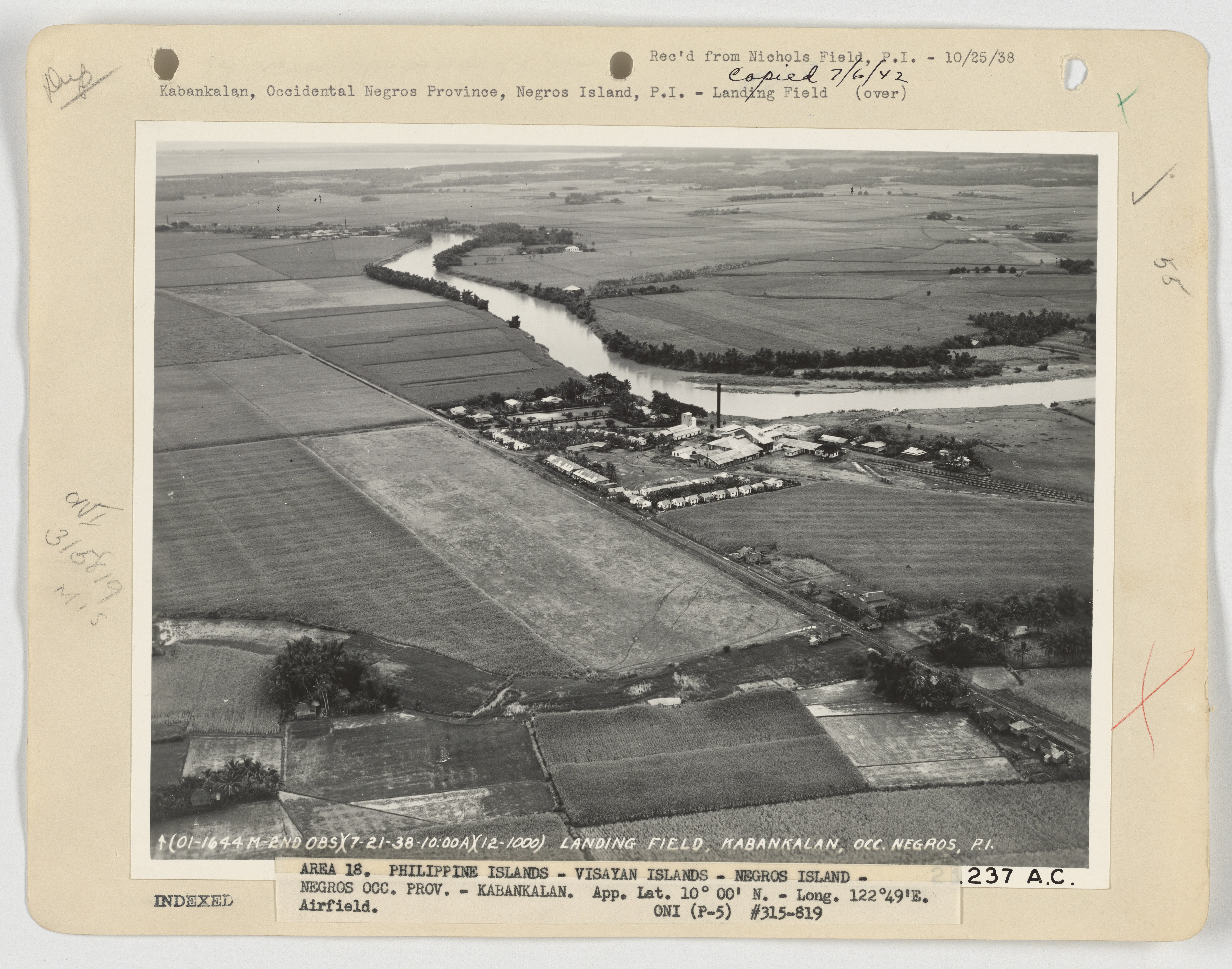|
Fellowship Baptist College
Fellowship Baptist College (FBC) is a non-stock, private and sectarian institution in Kabankalan, Negros Occidental, Philippines established in 1954. History Formerly known as "Fellowship Baptist Academy", the institution was founded by Baptist lay ministers, leaders and missionaries from the Visayan Fellowship of Fundamental Baptist Churches. It is a sectarian, non-stock and non-profit educational institution. Aside from student fees, it exists mainly upon benevolent donations from Fundamental Baptist churches organization, individual Christians and later from the alumni and its organization. It opened in 1954 with an enrollment of 212 students. It faithfully carried out its mission. In 1957, Fellowship Baptist Academy was given government recognition. In June 1982, the school operated a post-secondary course in Midwifery. The following year, it opened two degree courses which are Bachelor of Science in Business Administration and Bachelor of Arts. Upon conferring the government ... [...More Info...] [...Related Items...] OR: [Wikipedia] [Google] [Baidu] |
Negros Island Region
The Negros Island Region ( hil, Rehiyon sang Pulo sang Negros; ceb, Rehiyon sa Pulo sa Negros), also abbreviated and officially designated as NIR (unofficially ''Region XVIII''), was a short-lived administrative region in the Philippines which comprised the provinces of Negros Occidental and Negros Oriental, both of which cover the island of Negros. It existed from May 29, 2015, to August 9, 2017. Local officials and the Consultative Committee to Review the 1987 Constitution have proposed to reinstate Negros as a region or state of a Philippine federation. History Early initiatives Negros has history as a single province and as a briefly independent republic. The movement for a single-island region started in the 1980s, when officials from both provinces proposed a one-island, one-region unit. At the time, Negros Occidental and Negros Oriental were the only provinces in the Philippines situated on the same island but belonging to two different administrative regions. Their ... [...More Info...] [...Related Items...] OR: [Wikipedia] [Google] [Baidu] |
Kabankalan City
Kabankalan, officially the City of Kabankalan ( hil, Dakbanwa sang Kabankalan; ceb, Dakbayan sa Kabankalan; fil, Lungsod ng Kabankalan), is a 1st class component city in the province of Negros Occidental, Philippines. According to the 2020 census, it has a population of 200,198 people making it the second most populous city in Negros Occidental next to Bacolod. Kabankalan is also the second city with the highest gross and net income in Negros Occidental next to Bacolod. In terms of land area, Kabankalan City is the largest city in the province of Negros Occidental and is the second largest city in the entire Negros Island next to Bayawan City of Negros Oriental with a total area of 697.35 km2 The city hosts three major festivals: the ''Kabankalan Sinulog'' every third Sunday of January (celebrated together with Cebu City), ''Udyakan sa Kabankalan'' and the ''Charter Anniversary''. Kabankalan is also known for its ''Mag-aso Falls'' and the ''Balicaocao Resort''. Also l ... [...More Info...] [...Related Items...] OR: [Wikipedia] [Google] [Baidu] |
Negros Occidental
Negros Occidental ( hil, Nakatungdang Negros; tl, Kanlurang Negros), officially the Province of Negros Occidental, is a Provinces of the Philippines, province in the Philippines located in the Western Visayas Regions of the Philippines, region. Its capital is the city of Bacolod. It occupies the northwestern half of the large island of Negros (Philippines), Negros, and borders Negros Oriental, which comprises the southeastern half. Known as the "Sugarbowl of the Philippines", Negros Occidental produces more than half the nation's sugar output. Negros Occidental faces the island-province of Guimaras and the province of Iloilo on Panay Island to the northwest across the Panay Gulf and the Guimaras Strait. The primary spoken language is Hiligaynon language, Hiligaynon and the predominant religious denomination is Roman Catholicism. Bacolod is the capital, seat of government and the most populous city of the province, but is governed independently as a highly urbanized city. With a ... [...More Info...] [...Related Items...] OR: [Wikipedia] [Google] [Baidu] |
Philippines
The Philippines (; fil, Pilipinas, links=no), officially the Republic of the Philippines ( fil, Republika ng Pilipinas, links=no), * bik, Republika kan Filipinas * ceb, Republika sa Pilipinas * cbk, República de Filipinas * hil, Republika sang Filipinas * ibg, Republika nat Filipinas * ilo, Republika ti Filipinas * ivv, Republika nu Filipinas * pam, Republika ning Filipinas * krj, Republika kang Pilipinas * mdh, Republika nu Pilipinas * mrw, Republika a Pilipinas * pag, Republika na Filipinas * xsb, Republika nin Pilipinas * sgd, Republika nan Pilipinas * tgl, Republika ng Pilipinas * tsg, Republika sin Pilipinas * war, Republika han Pilipinas * yka, Republika si Pilipinas In the recognized optional languages of the Philippines: * es, República de las Filipinas * ar, جمهورية الفلبين, Jumhūriyyat al-Filibbīn is an archipelagic country in Southeast Asia. It is situated in the western Pacific Ocean and consists of around 7,641 islands t ... [...More Info...] [...Related Items...] OR: [Wikipedia] [Google] [Baidu] |
Private University
Private universities and private colleges are institutions of higher education, not operated, owned, or institutionally funded by governments. They may (and often do) receive from governments tax breaks, public student loans, and grant (money), grants. Depending on their location, private universities may be subject to government regulation. Private universities may be contrasted with public university, public universities and national university, national universities. Many private universities are nonprofit organizations. Africa Egypt Egypt currently has 20 public universities (with about two million students) and 23 private universities (60,000 students). Egypt has many private universities, including The American University in Cairo, the German University in Cairo, the British University in Egypt, the Arab Academy for Science, Technology and Maritime Transport, Misr University for Science and Technology, Misr International University, Future University in Egypt and ... [...More Info...] [...Related Items...] OR: [Wikipedia] [Google] [Baidu] |
Baptist
Baptists form a major branch of Protestantism distinguished by baptizing professing Christian believers only (believer's baptism), and doing so by complete immersion. Baptist churches also generally subscribe to the doctrines of soul competency (the responsibility and accountability of every person before God), ''sola fide'' (salvation by just faith alone), ''sola scriptura'' (scripture alone as the rule of faith and practice) and congregationalist church government. Baptists generally recognize two ordinances: baptism and communion. Diverse from their beginning, those identifying as Baptists today differ widely from one another in what they believe, how they worship, their attitudes toward other Christians, and their understanding of what is important in Christian discipleship. For example, Baptist theology may include Arminian or Calvinist beliefs with various sub-groups holding different or competing positions, while others allow for diversity in this matter within the ... [...More Info...] [...Related Items...] OR: [Wikipedia] [Google] [Baidu] |
Urban Area
An urban area, built-up area or urban agglomeration is a human settlement with a high population density and infrastructure of built environment. Urban areas are created through urbanization and are categorized by urban morphology as cities, towns, conurbations or suburbs. In urbanism, the term contrasts to rural areas such as villages and hamlets; in urban sociology or urban anthropology it contrasts with natural environment. The creation of earlier predecessors of urban areas during the urban revolution led to the creation of human civilization with modern urban planning, which along with other human activities such as exploitation of natural resources led to a human impact on the environment. "Agglomeration effects" are in the list of the main consequences of increased rates of firm creation since. This is due to conditions created by a greater level of industrial activity in a given region. However, a favorable environment for human capital development would also be genera ... [...More Info...] [...Related Items...] OR: [Wikipedia] [Google] [Baidu] |
Private School
Private or privates may refer to: Music * " In Private", by Dusty Springfield from the 1990 album ''Reputation'' * Private (band), a Denmark-based band * "Private" (Ryōko Hirosue song), from the 1999 album ''Private'', written and also recorded by Ringo Sheena * "Private" (Vera Blue song), from the 2017 album ''Perennial'' Literature * ''Private'' (novel), 2010 novel by James Patterson * ''Private'' (novel series), young-adult book series launched in 2006 Film and television * ''Private'' (film), 2004 Italian film * ''Private'' (web series), 2009 web series based on the novel series * ''Privates'' (TV series), 2013 BBC One TV series * Private, a penguin character in ''Madagascar'' Other uses * Private (rank), a military rank * ''Privates'' (video game), 2010 video game * Private (rocket), American multistage rocket * Private Media Group, Swedish adult entertainment production and distribution company * '' Private (magazine)'', flagship magazine of the Private Media ... [...More Info...] [...Related Items...] OR: [Wikipedia] [Google] [Baidu] |
Kabankalan
Kabankalan, officially the City of Kabankalan ( hil, Dakbanwa sang Kabankalan; ceb, Dakbayan sa Kabankalan; fil, Lungsod ng Kabankalan), is a 1st class component city in the province of Negros Occidental, Philippines. According to the 2020 census, it has a population of 200,198 people making it the second most populous city in Negros Occidental next to Bacolod. Kabankalan is also the second city with the highest gross and net income in Negros Occidental next to Bacolod. In terms of land area, Kabankalan City is the largest city in the province of Negros Occidental and is the second largest city in the entire Negros Island next to Bayawan City of Negros Oriental with a total area of 697.35 km2 The city hosts three major festivals: the ''Kabankalan Sinulog'' every third Sunday of January (celebrated together with Cebu City), ''Udyakan sa Kabankalan'' and the ''Charter Anniversary''. Kabankalan is also known for its ''Mag-aso Falls'' and the ''Balicaocao Resort''. Also loc ... [...More Info...] [...Related Items...] OR: [Wikipedia] [Google] [Baidu] |
Baptists
Baptists form a major branch of Protestantism distinguished by baptizing professing Christian believers only ( believer's baptism), and doing so by complete immersion. Baptist churches also generally subscribe to the doctrines of soul competency (the responsibility and accountability of every person before God), ''sola fide'' (salvation by just faith alone), ''sola scriptura'' (scripture alone as the rule of faith and practice) and congregationalist church government. Baptists generally recognize two ordinances: baptism and communion. Diverse from their beginning, those identifying as Baptists today differ widely from one another in what they believe, how they worship, their attitudes toward other Christians, and their understanding of what is important in Christian discipleship. For example, Baptist theology may include Arminian or Calvinist beliefs with various sub-groups holding different or competing positions, while others allow for diversity in this matter within t ... [...More Info...] [...Related Items...] OR: [Wikipedia] [Google] [Baidu] |
Department Of Education (Philippines)
The Department of Education (abbreviated as DepEd; fil, Kagawaran ng Edukasyon) is the executive department of the Philippine government responsible for ensuring access to, promoting equity in, and improving the quality of basic education. It is the main agency tasked to manage and govern the Philippine system of basic education. It is the chief formulator of Philippine education policy and responsible for the Philippine primary and secondary school systems. It has its headquarters at the DepEd Complex in Meralco Avenue, Pasig. The department is currently led by the secretary of education, nominated by the president of the Philippines and confirmed by the Commission on Appointments. The secretary is a member of the Cabinet. The current secretary of education is Sara Duterte. Presently, its mission is to provide quality basic education that is equitably accessible to all and lay the foundation for lifelong learning and service for the common good. It has changed its vision state ... [...More Info...] [...Related Items...] OR: [Wikipedia] [Google] [Baidu] |





